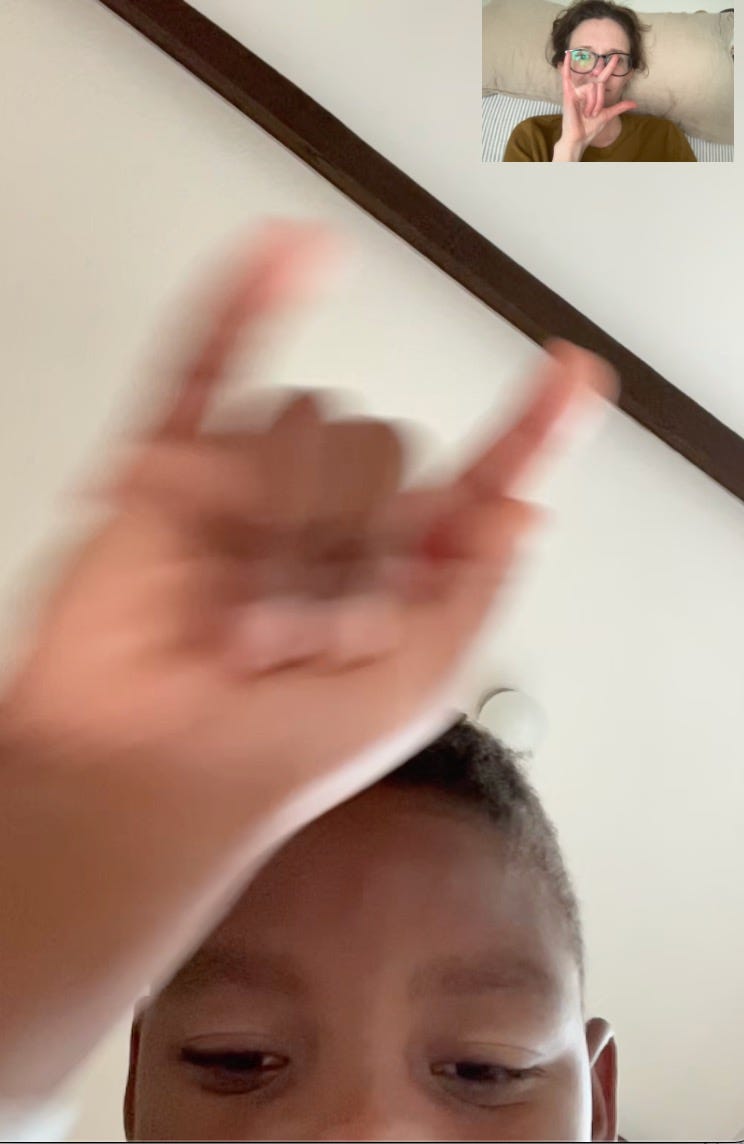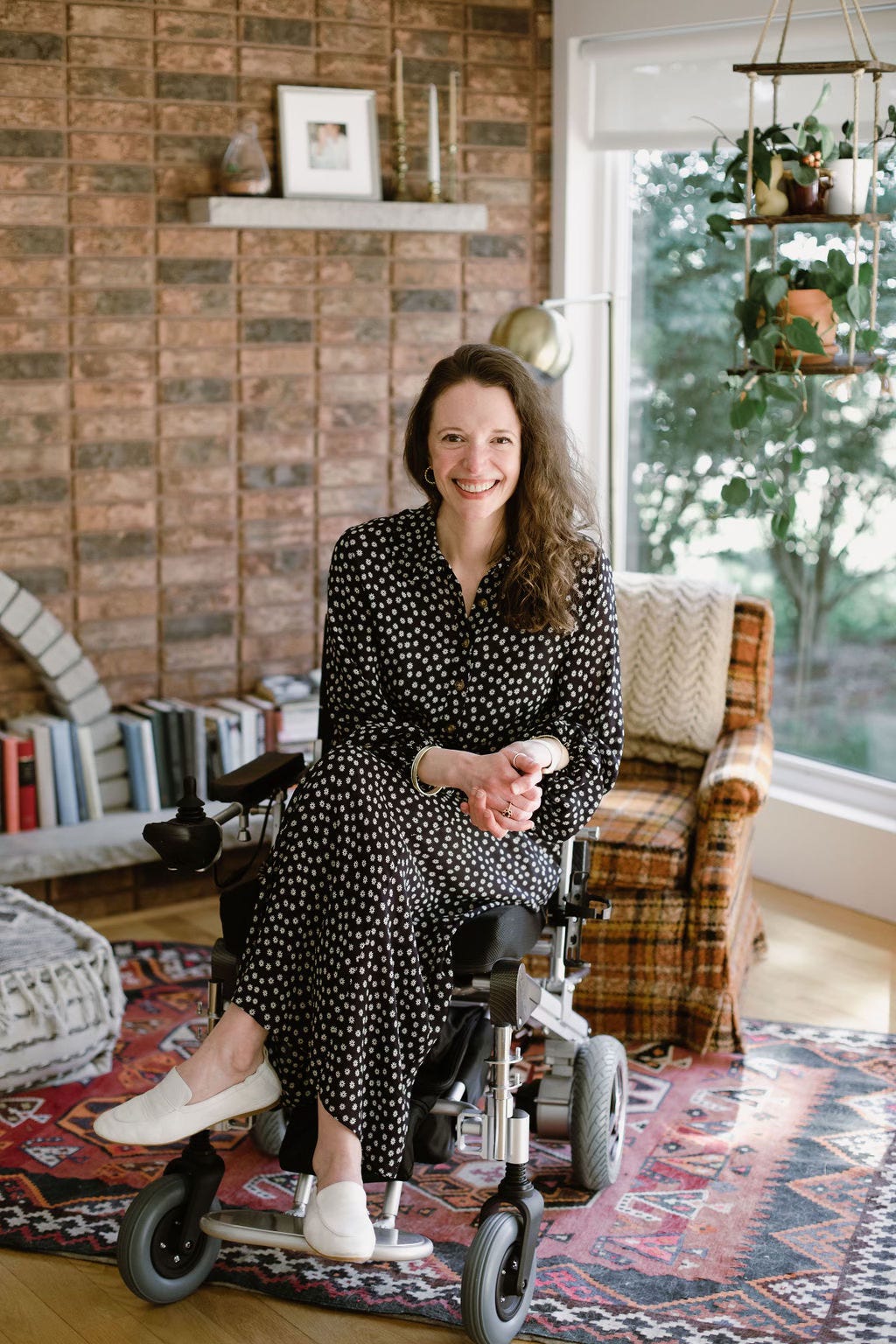Well, be careful what you wish for. Hours after I wrote that I needed more time alone, Khalil’s nanny tested positive for Covid, and I retreated to our bedroom to isolate myself. Sure enough, Khalil tested positive a few days later and I will be sequestered here until he and David are both negative. I am trying not to think about how long that might be.
It is excruciating to be apart from him while he coughs and wheezes. All I want to do is cuddle him. And, I am grateful to have a partner who is gentle and attentive with sick Khalil. My body doesn’t have much wiggle room, and if I can avoid Covid, I should. But it isn’t easy. As we had worried about, Khalil’s asthma has been impacted by Covid. We are in close contact with his medical providers, and because he has received three doses of the vaccine, we are hopeful.
While up here in my isolation tower, something that I have wanted to share for MONTHS became official. I am thrilled to share this news with you all finally!
I AM WRITING A BOOK ABOUT DISABLED PARENTING!!!!!!!
It’s a privilege to have Beacon Press publishing my upcoming book, Unfit Parent. Please read on for more of my official book description and a glimpse into what I’ve been working on. AHHH!!!!
One in four people has a disability, yet parenting books, blogs, and podcasts rarely, if ever, mention disabled parents. In many ways, disabled people are particularly well-suited to parenthood. Unfortunately, various factors — laws, assumptions, inaccessibility, and the child welfare system — can make being a disabled parent extraordinarily challenging. Non-disabled people and systems worry that disabled people are unable to keep kids safe, despite evidence to the contrary. For disabled people, this safety myth is terrifying. Of the many obstacles we face, the worst is frequent forced separation from our children. The majority of parents who lose custody of their children are disabled — these parents are labelled unfit.
Despite the societal obstacles, disabled parents bring tremendous value to their children, families, and communities. My disability teaches Khalil that there are many ways to have a body and mind. I am more accepting, attentive, and present than when I was not yet disabled. Like many disabled people, I live with a spirit of innovation and creativity — qualities that create a safer and softer world.
Disabled people know that the line between disabled and not is blurry. For those of us with bodies that require caregivers and wheelchairs and accommodations, our collective fragility never leaves our consciousness. We know that our exclusion from the parenting narrative is based on a myth. Every person lives in a body with needs; in seconds, those needs can shift in a way that renders a body care-dependent. But, for the non-disabled, the distance between their bodies and mine can seem vast. That perceived distance is, in part, a means of denying our shared mortality. Bodies like mine are proof that bodies, in general, are fragile. That life is precarious.
Parents, disabled and not, are at a breaking point. Every parent is drowning in the pressure to juggle work and home without the supportive net of a community. Childcare is cost-prohibitive, and capitalism forces us to work endless hours. Balance is elusive and impossible. Women climb the precarious scaffolding of western parenting with the added weight of sexism. It seems like most days, a major publication prints something like “parents can’t do this much longer.” And yet, very little changes.
Disability culture offers transformative solutions to the merciless form of parenting that late-stage capitalism has created. We would all benefit from incorporating mutual aid, crip time, a spirit of accommodation, and interdependence into our family and social systems. Disabled people are excellent at acknowledging, respecting, and supporting one another’s needs. We have learned not to value people based on their productivity. We embrace community and mutual aid. We invite a slower pace and variable capacity. We accept fragility.
Disabled parents are not only worthy parents, but we offer an antidote to the family silos that have formed over the last decades. We reject rugged individualism and capacity and productivity at all costs. We offer a hard-won truth. Life is fragile, and life is hard, but it is also good.
My new upcoming book, Unfit Parent, examines the obstacles that disabled parents face, the societal beliefs that undergird those barriers, and the political and economic systems that hold it all in place. Unfit Parent explores how disability culture and the strengths inherent in having a body like mine would, if included in parenting culture, make contemporary parenting more sustainable.
As I have said many times, thank you for reading my newsletter and for supporting my work. I am grateful to be able to think and write about disability.







So excited about your book and so sorry about your family's experience with COVID. How's it going? Holding you all close to my heart today!!
Very excited to hear this news about the book! And praying your sequestration will be mercifully short and you can all be reunited for snuggles.